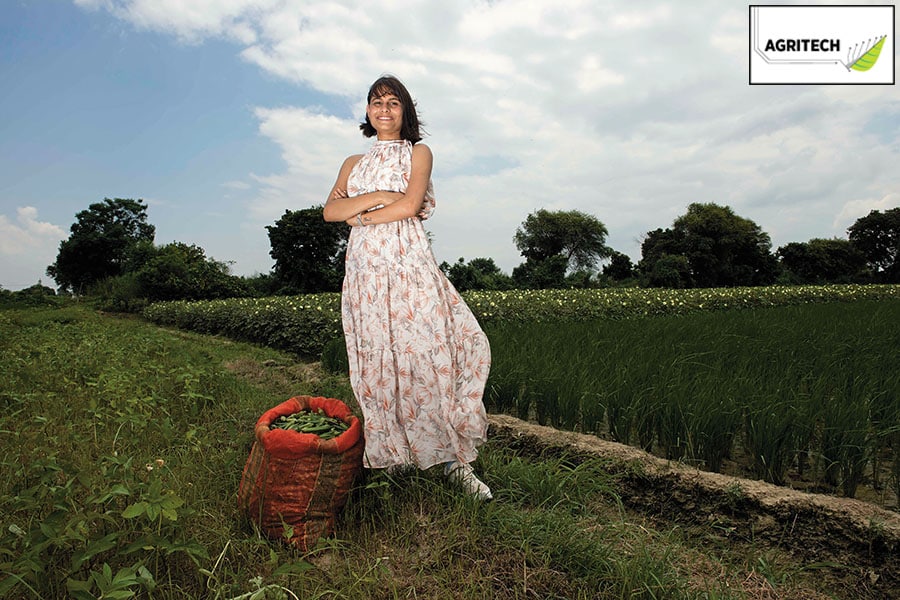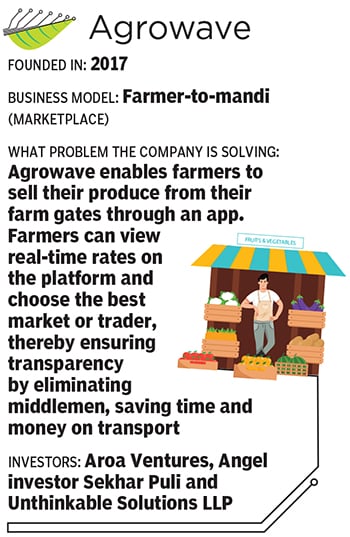
How Agrowave is building a farm-to-market business
Farmers spend day and night travelling to mandis to sell their produce, haggling over prices, dealing with traders and middlemen, and worrying about storage. Agrowave is trying to solve these problems
Image: Amit Verma IIT graduate Anu Meena, founder & CEO of Agrowave, at a farm in Haryana.
IIT graduate Anu Meena, founder & CEO of Agrowave, at a farm in Haryana.
Anu Meena had spent her childhood on farms in Manoli village in Rajasthan. Her grandfather was a farmer selling wheat, vegetables and pulses. She attended school, and tended cattle. Although too young to notice, she understood that selling produce was a difficult task. To spend day and night traveling to a mandi (marketplace), haggle over prices, deal with middlemen and traders, and worry about storing produce, especially with rising temperatures, was every farmer’s nightmare.
With an aim to solve these problems, in 2017, she launched agritech startup Agrowave. The farm-to-market business model helps farmers sell their produce from their farm gates through mobile pickup stations. Farmers can choose the mandi they want to sell the produce at, the pickup timing, the buyers or traders, the amount of produce they want to sell, all through an app.
Agrowave, which sends pick-up vans and takes the produce to the mandi the farmer has chosen, is connected with 5,000-plus farmers across Rajasthan, Haryana, Madhya Pradesh, Punjab and Maharashtra.
But the journey hasn’t been smooth, says Meena. “I wanted to help my grandfather and farmers like him, but I knew that all I wanted was to get into an IIT,” she recalls. A bright student, she travelled five km from her village by foot to her school in a town. Not only was she the first person to score the highest in Grade 10 in her village, she also became the first to crack the IIT entrance exams. “My father earned Rs 8,000 a month. And we were six siblings—five sisters and a brother. My mother pushed him to take me to Kota for coaching,” she says. She got into IIT-Delhi for biochemical engineering and biotechnology. “It’s not considered a good stream, but I wanted the exposure, learn new things, and experience a culture outside my village.”










